F. Rodrigo P. Cavalcanti
Deep Reinforcement Learning for QoS-Constrained Resource Allocation in Multiservice Networks
Mar 03, 2020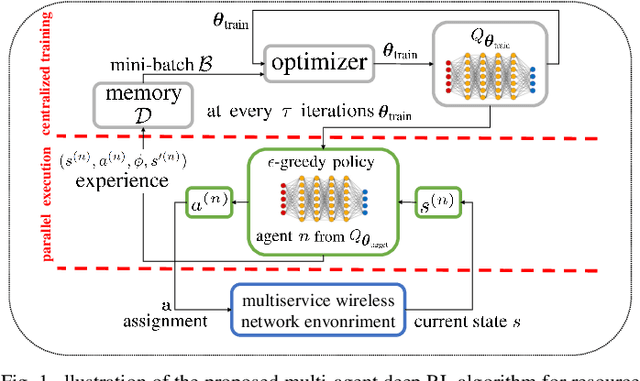
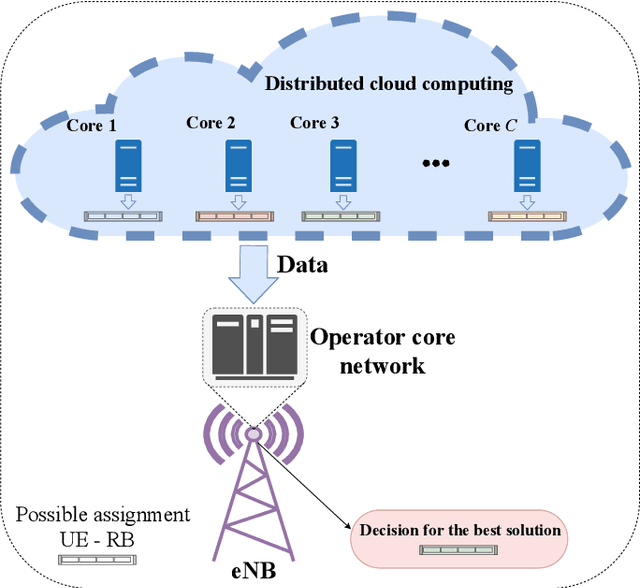
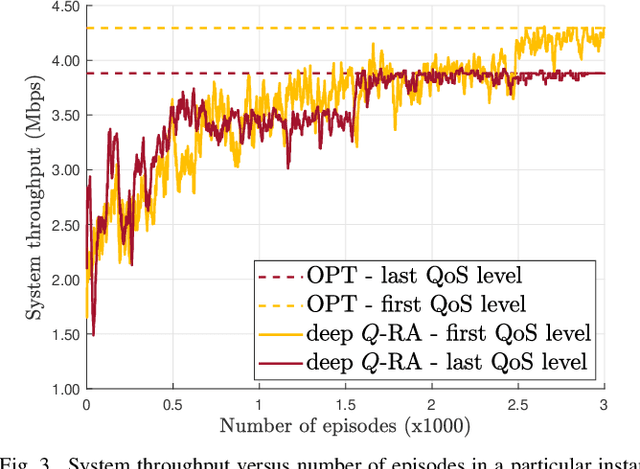
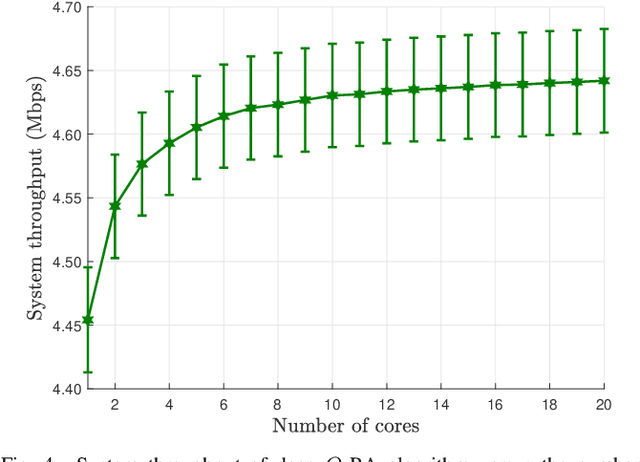
Abstract:In this article, we study a Radio Resource Allocation (RRA) that was formulated as a non-convex optimization problem whose main aim is to maximize the spectral efficiency subject to satisfaction guarantees in multiservice wireless systems. This problem has already been previously investigated in the literature and efficient heuristics have been proposed. However, in order to assess the performance of Machine Learning (ML) algorithms when solving optimization problems in the context of RRA, we revisit that problem and propose a solution based on a Reinforcement Learning (RL) framework. Specifically, a distributed optimization method based on multi-agent deep RL is developed, where each agent makes its decisions to find a policy by interacting with the local environment, until reaching convergence. Thus, this article focuses on an application of RL and our main proposal consists in a new deep RL based approach to jointly deal with RRA, satisfaction guarantees and Quality of Service (QoS) constraints in multiservice celular networks. Lastly, through computational simulations we compare the state-of-art solutions of the literature with our proposal and we show a near optimal performance of the latter in terms of throughput and outage rate.
Adaptive Modulation and Coding based on Reinforcement Learning for 5G Networks
Nov 25, 2019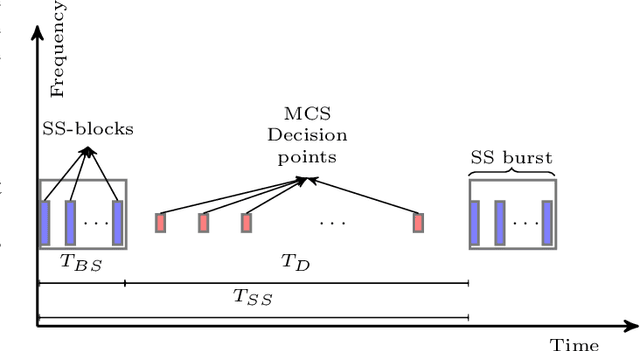
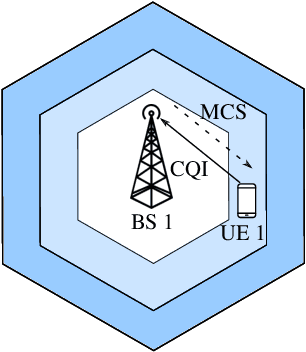
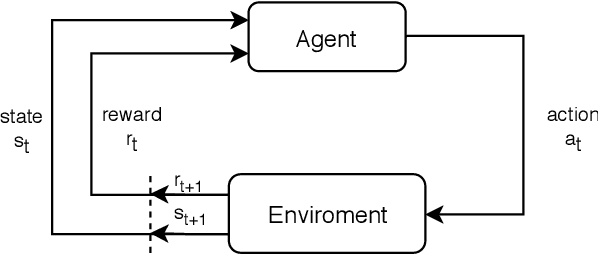
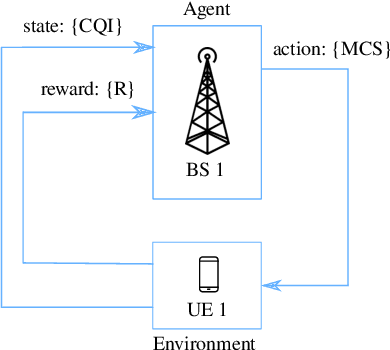
Abstract:We design a self-exploratory reinforcement learning (RL) framework, based on the Q-learning algorithm, that enables the base station (BS) to choose a suitable modulation and coding scheme (MCS) that maximizes the spectral efficiency while maintaining a low block error rate (BLER). In this framework, the BS chooses the MCS based on the channel quality indicator (CQI) reported by the user equipment (UE). A transmission is made with the chosen MCS and the results of this transmission are converted by the BS into rewards that the BS uses to learn the suitable mapping from CQI to MCS. Comparing with a conventional fixed look-up table and the outer loop link adaptation, the proposed framework achieves superior performance in terms of spectral efficiency and BLER.
 Add to Chrome
Add to Chrome Add to Firefox
Add to Firefox Add to Edge
Add to Edge